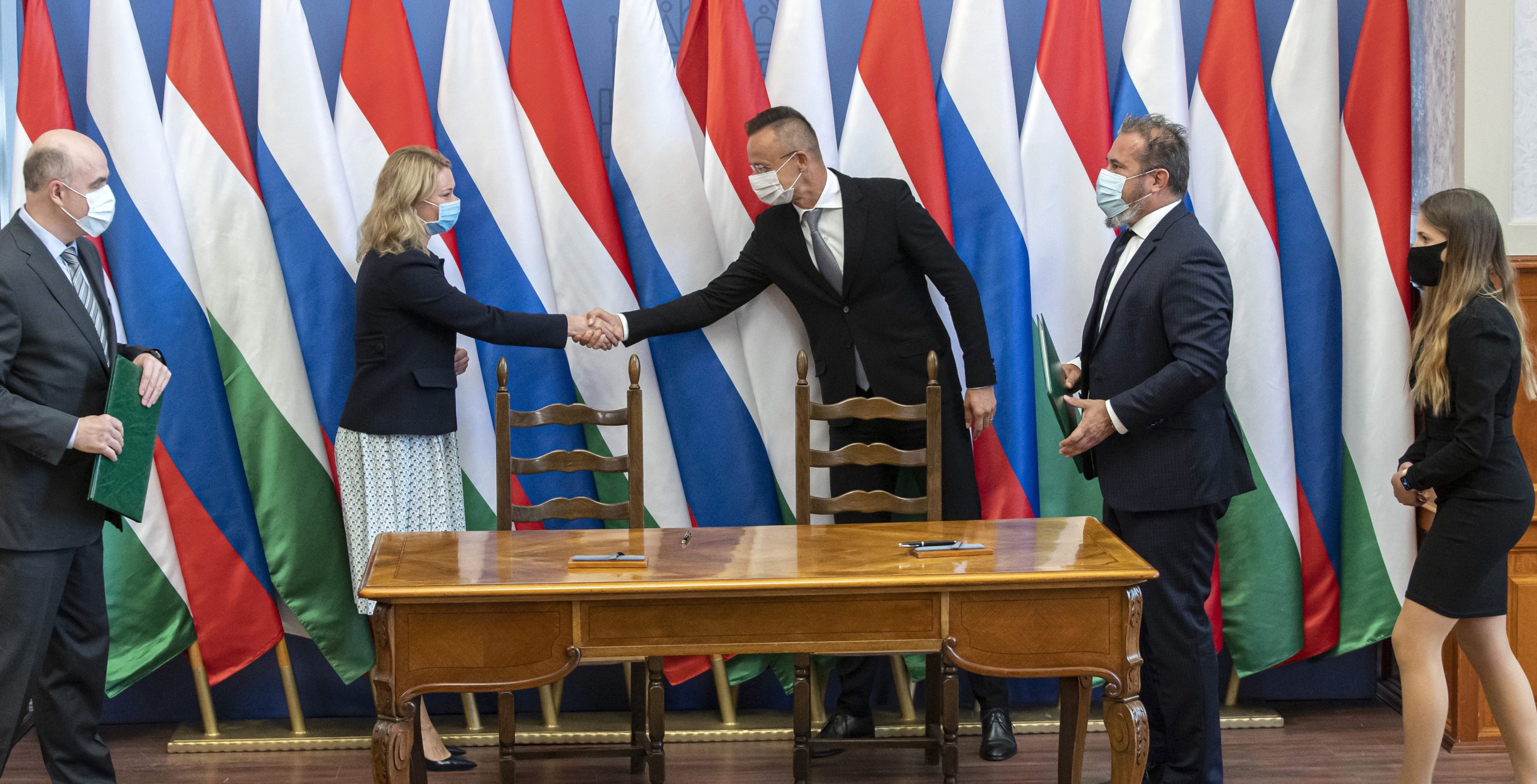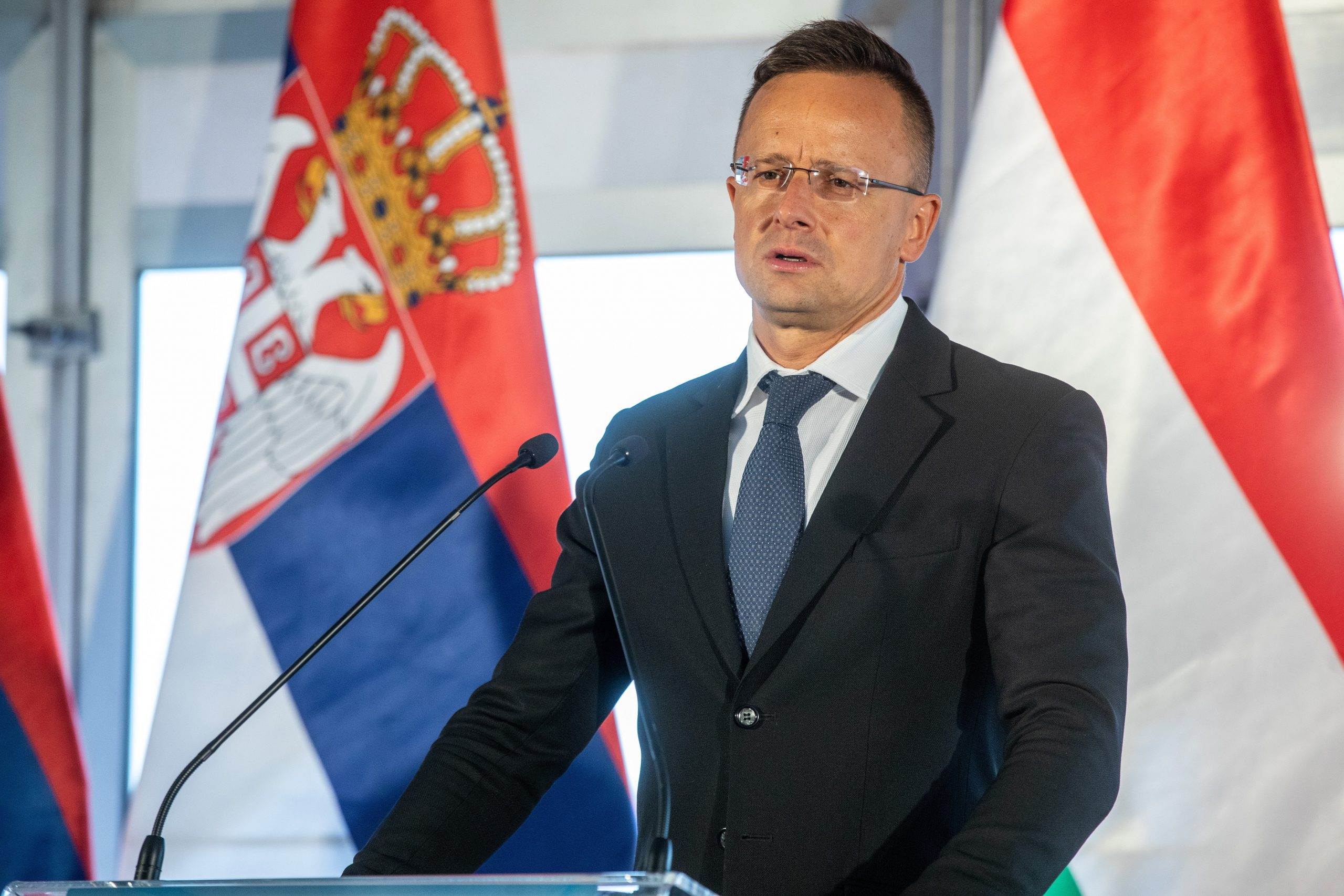
In response, the Ukrainian foreign ministry issued a statement saying it would turn to the European Commission and postpone a meeting of the Hungarian-Ukrainian economic committee in response to the move.Continue reading

Hungarian Foreign Minister Péter Szijjártó and Serbian Interior Minister Aleksandar Vulin inaugurated the gas interconnector linking the two countries’ gas networks in Kiskundorozsma, in southern Hungary, on Thursday.
Supplying energy is one of the most important duties of the government as well as a matter of national sovereignty, Szijjártó told the event. Without such resources, the country would become vulnerable and “fair game for others”, he said.
“Hungary’s gas supply is not an ideological or political issue: ideologies and political statements cannot heat homes or fuel industry,” Szijjártó said.
Earlier this week, Hungary signed an agreement with Russian energy giant Gazprom to ensure supply once the previous agreement expires on Sept. 30, Szijjártó noted. The 15-year agreement, in which Hungary pledged to buy 4.5 billion cubic meters of gas each year for at least the next ten years, will ensure the country’s supply for 15 years, he said.
Meanwhile, consistent development and route diversification are key to securing continuous supplies, Szijjártó said. The new interconnector will transport up to 8.5 billion cubic meters of gas to Hungary annually, with 32 percent of the first year’s supply already contracted, he said.
At the same time, Szijjártó noted that Ukraine has threatened to turn to the European Commission over the agreement, which they said violated the Hungarian-Ukrainian basic treaty by “dealing a blow” to Ukrainian interests. Previously, Russian gas deliveries to Hungary flowed through the Ukrainian pipeline.
Hungary categorically rejects the Ukrainian complaint, and sees it as a “gross attack on Hungary’s sovereignty”, Szijjártó said. “Ukraine, or any other country, has no say whatsoever on what and with whom we Hungarians sign agreements,” he said.
Vulin said the interconnector brought about an important change for Serbia: instead of paying gas transit fees, from now on Serbia will be the one getting paid, he said.
Vulin praised Serbian President Aleksandar Vucic and Hungarian Prime Minister Viktor Orbán as “two of the last free leaders of Europe who put their people’s interests first.” The interconnector’s success is also thanks to their ability to withstand pressure, he said. “The region was always peaceful in periods when Hungarians and Serbians could decide their fate independently, and it will remain stable and develop as long as that independence is maintained,” Vulin said.
Featured photo by Tibor Rosta/MTI